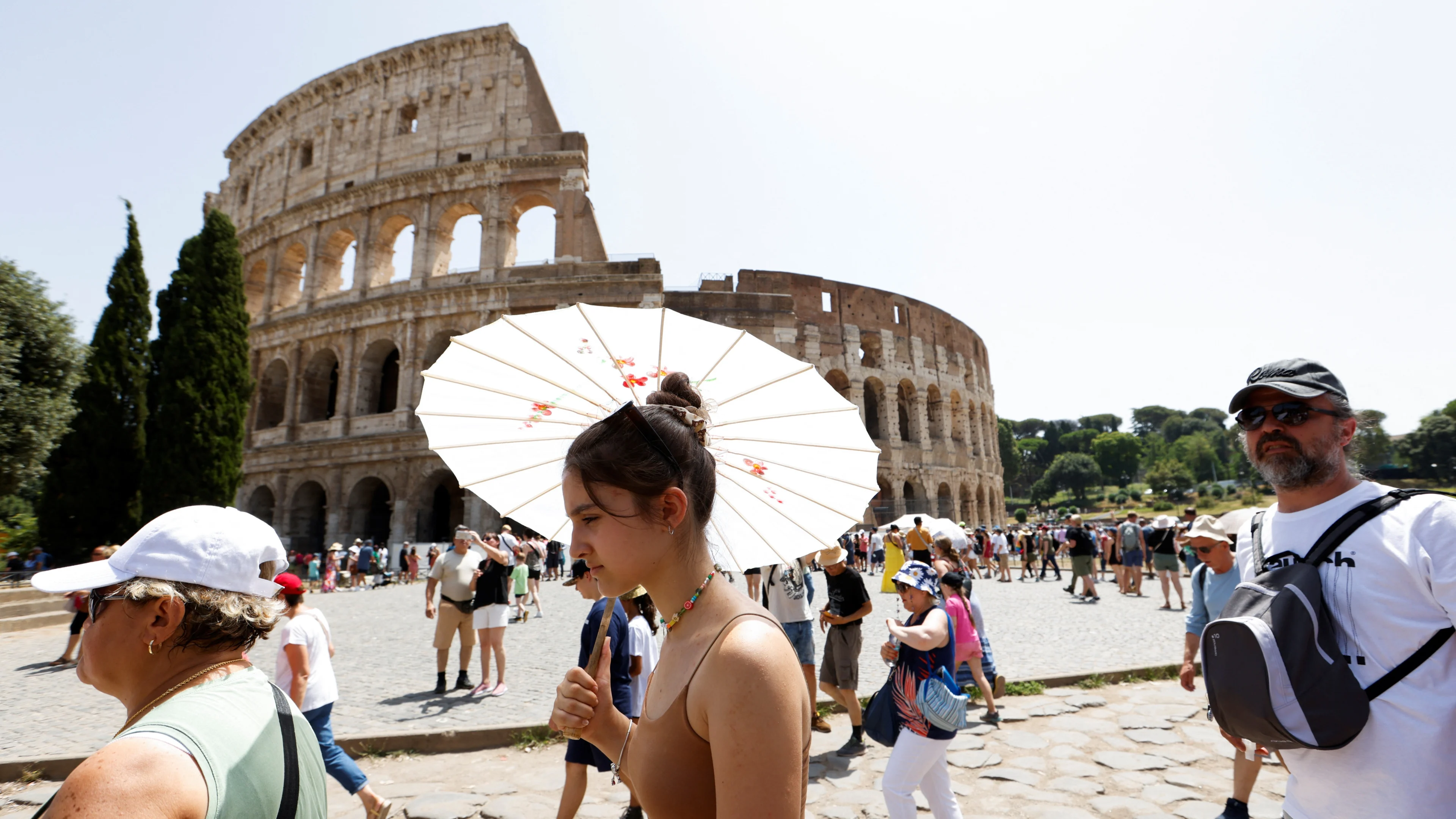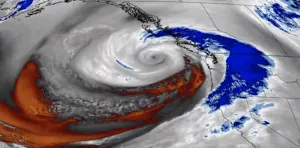
Extreme heat radiates around the globe as U.S., China enter climate talks
PHOENIX - Asia, Europe, and the United States baked under extreme heat on Monday as global temperatures soared toward alarming highs and U.S. leaders sought to reignite climate diplomacy with China.
The United States was scorched by record-setting heat in the west and south, lashed with flood-triggering rain in the northeast, and choked by wildfire smoke in the Midwest.
A heat dome parked over the western United States pushed the temperature in California's Death Valley desert to 53 C on Sunday, among the highest temperatures recorded on Earth in the past 90 years.
READ MORE: Big investor firms could have been richer if they had dropped oil and gas stocks
Phoenix hit 45.5 C on Monday, matching a historic record of 18 straight days over 43.3 C with the forecast showing the record likely to extend for at least another week.
The U.S. heat wave coincided with extreme temperatures elsewhere throughout the Northern Hemisphere.

A map of North America shows concentrations of particulate matter, or PM2.5, the main pollutant in wildfire smoke as depicted on July 17, 2023. (AirNow.gov/REUTERS handout)
A remote town in China's arid northwest, Sanbao, registered a national record of 52.2 C. Wildfires in Europe raged ahead of a second heat wave in two weeks that was set to send temperatures as high as 48 C, while authorities in Italy and France issued heat-related health warnings.
Even in Phoenix, accustomed to hot weather, the prolonged bout of extreme heat is testing people and worrying officials. The international charitable organization Salvation Army has opened 11 cooling centers and sent out a mobile unit to deliver relief to homeless people who have difficulty reaching the sites.
"Extreme heat is Arizona's natural disaster. So for the Salvation Army, this is a disaster response," said Scott Johnson, a spokesperson for the organization in the U.S. southwest.
The heat killed 425 people in the Phoenix-area's Maricopa County last year, so the Salvation Army mobile unit distributes urgently needed cold water, hats, sunscreen, and hygiene kits to those in need.
"It feels like you're inside of a dryer — the dryer at the laundromat — and it's suffocating," said Cristina Hill, an unhoused woman who benefited from the outreach on Monday and said she suffered a heat stroke last year. "I cry all the time. I yell at the heat."
Another unhoused woman, Maritza Villegas, said she has gotten shaky and jittery from the heat, which provoked dry heaves.
"This means a whole lot — the world — because without water I'd be in the hospital right now," Villegas said of the assistance.
Scientists have long warned that climate change, caused by CO2 emissions from burning fossil fuels, will make heat waves more frequent, severe, and deadly. They say governments need to take drastic actions to reduce omissions to prevent climate catastrophe.
The European Union's Copernicus Climate Change Service says 2022 and 2021 were the continent's hottest summers on record.

A view of smoke billowing from mountain of a raging wildfire in Tijarafe on the Canary Island of La Palma in Spain on July 16, 2023. (EIRIF Handout/REUTERS)
U.S., China in climate talks
The extreme global temperatures underscored the urgency in talks that resumed between China and the United States on climate change, especially as scientists say the target of keeping global warming within 1.5 C of pre-industrial levels is moving beyond reach.
U.S. climate envoy John Kerry met Chinese counterpart Xie Zhenhua in Beijing, urging joint action to cut methane emissions and coal-fired power.
"In the next three days, we hope we can begin taking some big steps that will send a signal to the world about the serious purpose of China and the United States to address a common risk, threat, challenge to all of humanity created by humans themselves," Kerry said.
"It is toxic for both Chinese and for Americans and for people in every country on the planet."
Prolonged high temperatures in China are threatening power grids and crops and raising concerns about a repeat of last year's drought, the most severe in 60 years.
Typhoon Talim was gaining strength and due to make land at night along China's southern coast, forcing the cancellation of flights and trains in the regions of Guangdong and Hainan.
In South Korea, torrential rains left 40 people dead as river levees collapsed causing flash floods. They followed the heaviest recorded rain in the capital Seoul last year.
Watch below: Antarctic ice levels undergo 'massive decrease'
European heat wave unrelenting
An unrelenting heat wave continued in Europe as well.
Italy's health ministry on Monday issued red weather alerts — signaling a possible health threat for anyone exposed to the heat — for 20 of the country's 27 main cities on Tuesday, with the number expected to rise to 23 on Wednesday.
France's public health agency said the current stretch of hot weather would probably hospitalize or kill "many" people, as heat waves have done almost every summer since 2015. The World Meteorological Organization said the extreme heat and rainfall was expected to extend into August.
"In many parts of the world, today is predicted to be the hottest day on record," tweeted Tedros Adhanom Ghebreyesus, director-general of the World Health Organisation.
"The #ClimateCrisis is not a warning. It's happening. I urge world leaders to ACT now."
As many as 61,000 people may have died in Europe during heat waves last summer, with a repetition feared this season.
"My worry is really health — the health of vulnerable people who live just below the rooftops of houses which are not prepared for such high temperatures," said Robert Vautard, a climate scientist and director of France's Pierre-Simon Laplace Institute. "That could create a lot of deaths."
Reporting by Kate Abnett in Brussels, Valerie Volcovici in Beijing, Charlie Devereaux and Emma Pinedo in Madrid, Giselda Vagnoni and Crispian Balmer in Rome, Emma Farge in Geneva, Michele Kambas in Nicosia, Hyonhee Shin in Seoul, Julia Harte in New York and Liliana Salgado in Phoenix; writing by Charlie Devereux and Daniel Trotta; editing by Andrew Cawthorne, Nick Zieminski and Aurora Ellis.
Thumbnail image: People walk near the Colosseum on July 17 during a heat wave across Italy as temperatures are expected to rise further in the coming days. (Remo Casilli/REUTERS)










